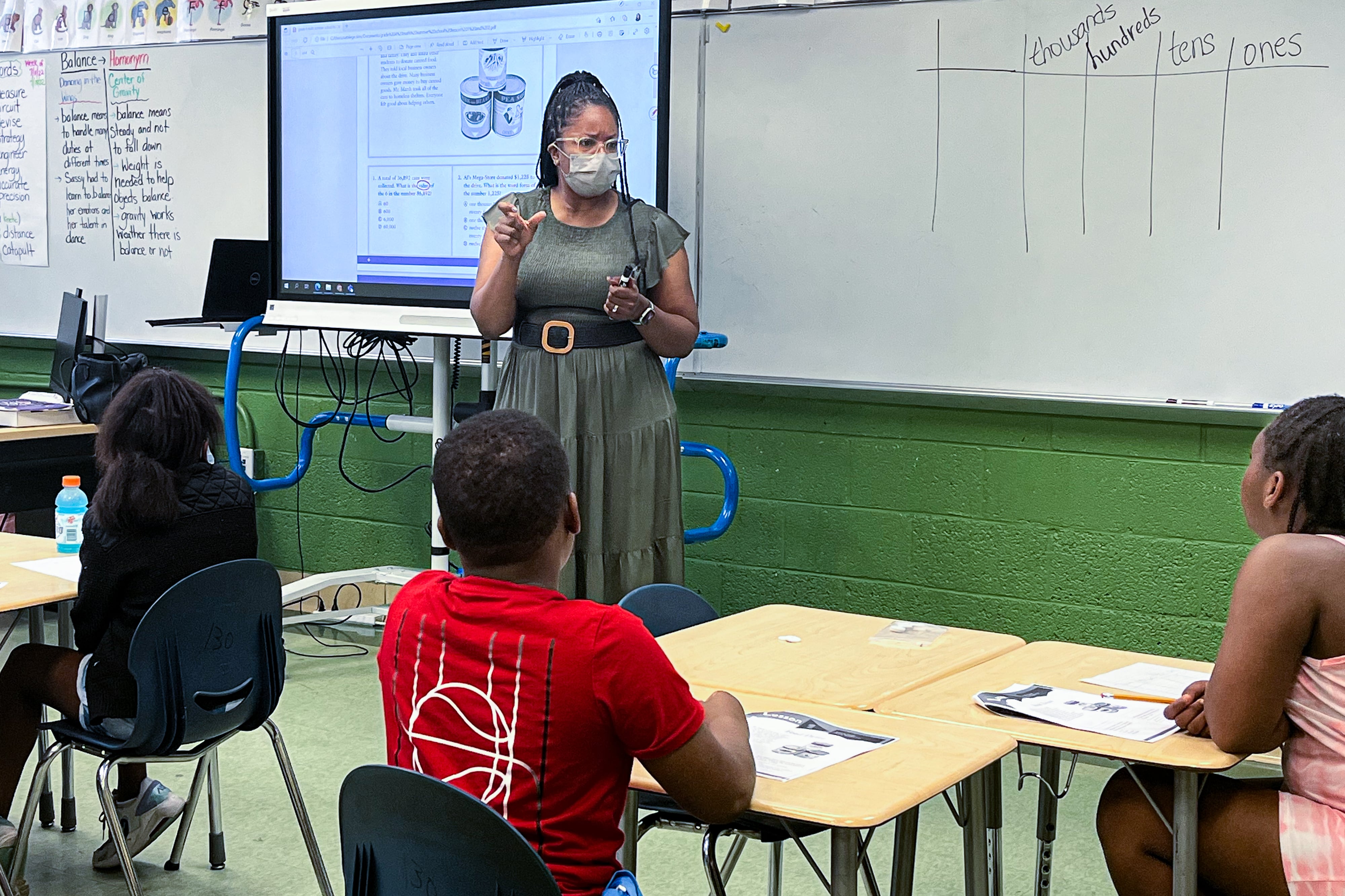After a scaled back summer school program last year, the Detroit Public Schools Community District may have more to offer students in 2024 thanks to funding from community partners.
During a school board meeting Tuesday, Superintendent Nikolai Vitti announced that United Way for Southeastern Michigan and Ballmer Group will provide summer school programming for grades K-8. Called Summer Discovery, the initiative provides enrichment programming for schools in Wayne, Oakland, and Macomb counties at no cost to families.
United Way is teaming up with Building Impact Partners, an advising firm that has created similar initiatives in New York and Indiana.
The program will last for five weeks during the summer break, with United Way and the Ballmer Group providing up to $2,000 per student, Vitti said.
“We know the importance of summer in maintaining students’ progress and providing enrichment,” co-founder Steve Ballmer said in a news release. “We’re supporting schools to offer opportunities to kids in Southeast Michigan who wouldn’t have the same chances as kids in other parts of Michigan.”
Vitti did not specify how many hours per day students would attend or how many would be served.
Schools interested in becoming a Summer Discovery site can apply on the program’s website until March 1. Applications are open to public and charter schools in the three metro Detroit counties. The schools must conduct in-person classes, serve at least a 50% free lunch population, have 50 students or more attending during the school year, and serve students completing grades K-8 this spring.
Schools will be notified by March 24 if their applications have been approved, according to the Summer Discovery website. Applications will then open to families, said Jerome Espy, the director of media relations for United Way.
“The goal is to stem the learning loss that happens in the summer, so we’re hoping this bridges that gap,” he said.
DPSCD will also be working to identify its own schools that can offer summer school since not every school building has air conditioning, Vitti said.
Schools will have the option of using their own curriculum or following a curriculum provided by The Lavinia Group, an education organization. The curriculum provides 185 daily minutes of literacy and math for students and accommodates students with disabilities and English language learners.
“We really want to create an environment where households are more stable and that children can thrive,” Espy said. “This sounds cliche, but this is the next generation and during the summertime, if they’re without some kind of engagement, then students can lose the progress that they’ve made. And it’s even more important now post-COVID.”
District looking for ways to offer summer school after pandemic
Vitti said during the meeting that the district had been considering using some of the $94.4 million DPSCD received from its literacy lawsuit to fund summer school.
“We did talk about using literacy lawsuit money to fund summer school this year, but there would’ve been restrictions on that because it could only focus on literacy,” Vitti said. “But now with this funding, we can use that literacy lawsuit money for something else.”
As DPSCD has already spent or allocated the $1.27 billion it received in COVID relief funds, the district is looking at alternate ways to provide educational programming during the summer.
DPSCD was among the many Michigan school districts that used COVID relief aid to beef up their summer programming, offering everything from credit recovery to camps focused on robotics, sports, and culinary arts. The expanded options came at a time when students were struggling with the academic impact of the pandemic and parents were struggling with child care. Many parents and students had been looking for extra study time, fun activities, and opportunities to make up credits.
DPSCD spent a combined $21 million on programs during the summers of 2021 and 2022, and the Biden administration spotlighted its Summer Learning Experiences program.
But last year, the district was only able to offer course recovery for missed or failed classes to students in grades 8-12, a transition program for incoming kindergartners, and some limited activities in partnership with local recreation centers and public libraries.
Vitti said in a news release that DPSCD is grateful for this year’s investment in Detroit families.
“This investment in summer programming fills a long-standing gap in equal access to providing all children, regardless of zip code, with a safe learning environment over the summer,” he said.
Editor’s note: A previous version of this story said 50% of the students who would enroll in the summer program would have to be those who receive a free or reduced price lunch. Officials said Thursday that the percentage would apply only to students who receive a free lunch.
Micah Walker is a reporter for BridgeDetroit. You can reach her at mwalker@bridgedetroit.com






